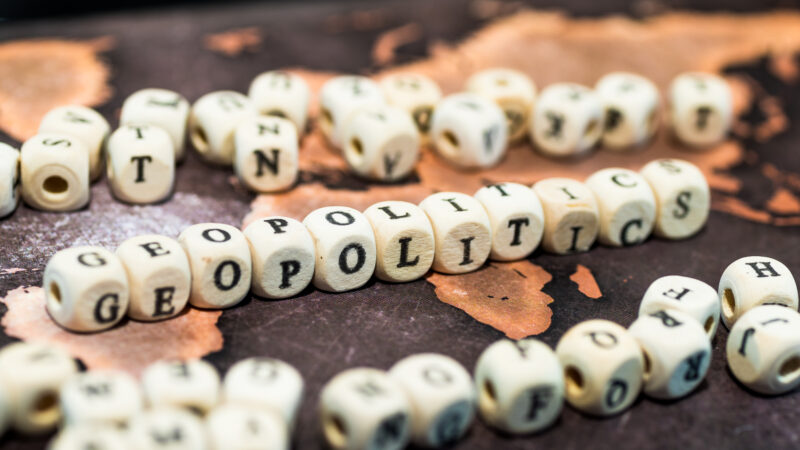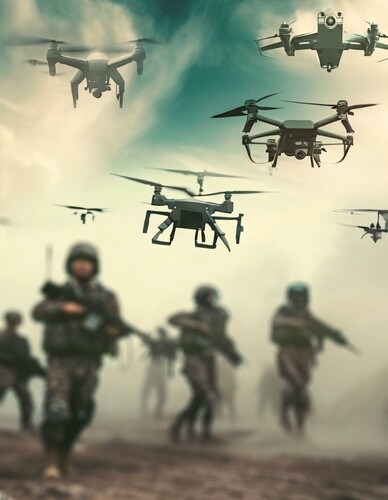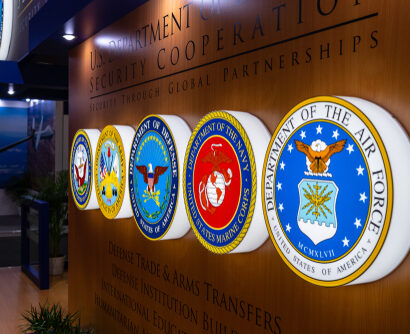Abstract: The emergence and spread of the evolved Sars-Cov-2 with a tremendous contagious capacity from a virus family of millenary existence (Coronavirus) has presented a major challenge for disciplines such as geopolitics without distinguishing between race, creed, age, social class and geographic region among other categorizations. Geopolitics focuses on the study and explanation of politics and power as spatial phenomena. In this short essay, initial reflections will be set out to identify geopolitical limits in addressing the current juncture. A first empirical approach to said phenomenon reveals difficulties in consolidating Sars-Cov-2 and the frustrations surrounding it as a transnational, interpretative community.
Bottom-line-up-front: The multiplicity of narratives that have arisen within and outside the scientific and academic communities, states, international institutions, media, associations and social networks on Sars-Cov-2, with references to conspiracy theories, therapies, protocol effectiveness and vaccine candidates, among others allude to the non-existence of a monopoly over the narratives, reasoning and dramas which encapsulate the global challenge.
Problem statement: How does the governmentalization of geopolitical discourse and the constitution of the dramas surrounding international politics influence the proliferation challenge in centers and sources?
So what?: A re-assessment of the status quo cartography is underway as “new geographies” emerge. Within the “risk society” and the “crisis society”, the weight of material attributes as a variable of state power tends to be relativized in the face of phenomena such as the Sars-Cov-2 pandemic – which has formed epicenters in the most developed countries.

Source: shutterstock.com/Sean K
Geopolitics and the Invention of Borders: The Theses of Classical and Critical Schools
The initial versions of geopolitics are mainly Germanic and Anglo-Saxon, they tended to emphasise geographic delimitation and location as a primary factor in defining state power and its policy orientations (domestic and foreign). The binary, organicist, border-oriented, securitarian and those that referred to the political projection of power, became the cornerstones of a discipline for which the territory of the state, its limits, wealth, wars, disputes and pacts developed into part of its favorite gravitational centers.[1]
The questioning and discussions about its scientificity along with the debates on the crisis and mutation of the Westphalian state as a “construct” of modernity opened diverse and disparate paths for explaining and reinterpreting the geopolitical phenomenon. Their heterodox critical side was framed in Lacoste´s geographical discourse, Foucault´s bio-politics of power, Tuathail´s interpretative communities as well as other approaches that maintained underlying borders that divided rulers and ruled people on the one hand. The generators of ideas, narratives and common senses together with those who accept them was framed on the other hand.
Existential Risks and Dangers: The Challenge of the Governmentalization of the Political Phenomenon
Ulrich Beck, one of the forerunners of the “risk society”, observed “the end of the others, the end of all our sophisticated possibilities of distancing”. He foresaw a new era whose power “was a danger that abolishes all the protected zones and all the differentiations of modernity”[2].
Occurrences such as transnational organized crime, terrorism, the consequences of climate change and pandemics are emerging at their most lethal and harmful forms for human beings and the environments they inhabit.
The current health crisis continues to test the capacities of societies and states which face an existential threat to which the largest budgets, the best-equipped health systems and the most reputable scientific institutions are still far from understanding. A concrete response would assure the world that chaos is under absolute control. Vaccines and vaccine candidates from nations worldwide will have to demonstrate their effectiveness in the short, medium and long term.
Like many other sciences, geopolitics is embedded in endless discussions concerning Sars-Cov-2 challenges as well as its consequences and influence over the spatial policies of the state, power and the rethinking of discursive structures.[3]
The Imperialization of Spaces in the “Crisis Society”: A Preliminary Discussion
At the heart of the theoretical approach orienting the present piece, one will find the axes of Tuathail’s 2005 reflection on the “imperialization of space” and its hierarchical organization through the division of lines identified via influence, material resources and capabilities, race, social class, gender.[4] According to this author, the use of Eurocentric standards to investigate, measure and describe the political and geographical structure of the world responds to a form of epistemological imperialism. In such a context, the efforts of geopoliticians to impose their vision of space and power over marginal groups are evident.
The forms of specialization of international politics have been diverse. The cleavages and “otherness” generated by such a process have similarly been varied. Since the first attempts by Bodin and Montesquieu to answer the controversial question regarding the spatiality of political phenomena, other authors such as Von Ronke and Ratzel have followed in suit, with approaches that are indicative of ideological affiliations, political positions and, in some cases, certain commitments to power.
Amidst the rise of “crisis society”, as the doctrinal core on which the notions of Western modernity are built, liberalism ideology finds itself confronted with the unstoppable exhaustion of its paradigms for managing scarcity and its generated conflicts. The current upheaval is shaking the very heart of the system (the United States of America). Its hegemonic consolidation in the second post-war period, the consensual acceptance of its democratic institutions, its triumph over the former USSR in the strategic dispute of the Cold War, leadership in the confrontation of “new threats”, dangers and transnational challenges served to a great extent to feed the narrative about the dramas and “otherness” surrounding it. These are as follows: Progress (backwardness), democracy (tyranny), hegemony (subordination), peace (conflict). Now, as the epicenter of a health crisis that has trembled world politics, it shows the disastrous consequences resulting from the lack of an integrated public health system with the capacity to manage large-scale crises through prevention, information, pedagogy, collaboration, solidarity, mobilization and the transnationalization of public policy. U.S. President, Joe Biden asserted that Sars-Cov-2 posed a war situation for his country, which required exceptional efforts, resources and measures.[5]
Its hegemonic consolidation in the second post-war period, the consensual acceptance of its democratic institutions, its triumph over the former USSR in the strategic dispute of the Cold War, leadership in the confrontation of “new threats”, dangers and transnational challenges served to a great extent to feed the narrative about the dramas and “otherness” surrounding it.
Interpretative Communities and their Role in the Construction of International Political Dramas
The governmentalization of geopolitical discourse accounts for the interpretation of chronological periods, geographical location, topography, physical conditions, possession and control over resources and access to strategic routes. They all constitute axes whereby:
- conceptual approaches originated
- dramas and narratives were constructed
- ranks and hierarchies were established among the players that comprise the international system.
In that sense, it was easy to distinguish the theorists’ determination to impose centers and peripheries, zones of differentiated strategic value, and actors with different capacities for action and influence. Such was the case with authors including Alfred Mahan with his notions of maritime hegemony; Rudolf Kjellen and his thesis on the state as a living organism; Nicholas Spykman in his defense of the “outer rims and U.S. interventionism; and Halford Mackinder with his declaration of the “end of geography”, his three scenes of conflict (pre-Columbian, Columbian, and post-Columbian), and his map “Natural Seats of Power”, where he attempts to define the natural determinants of power.[6]
The Sars-Cov-2 attack does not differentiate between center and periphery, outer or inner edges or poverty and wealth. Among the epicenters of the pandemic are nations with an extraordinary influence on world politics (the European Union, India, United Kingdom, Brazil, India, Russia) derived from their military, territorial dimensions, technological development, economic and financial power. For the moment, they are under the lash of the onslaught, with no clear exit strategy for the immediate future. Their abundant resources together with the power built on their material and ideological capabilities do not succeed in the retreat of the nano-enemy that persists, sickening and claiming more human lives on a daily basis.
Among the epicenters of the pandemic are nations with an extraordinary influence on world politics … derived from their military, territorial dimensions, technological development, economic and financial power.
At present, efforts towards leadership in developing vaccines against such a dangerous scourge go beyond the exclusive circle of the hegemons and the wealthiest nations of the planet to include developing ones for instance Cuba, Kazakhstan, Peru, Argentina, Egypt and Nigeria among others.[7] The production, patenting, and successful implementation of some of these drugs will give their countries of origin an attribute of indisputable value capable of projecting political power.
Persistent Dissent about the Origins, Existence and Future of Sars-Cov-2: Its Presence in Geopolitical Discourse
In like manner, the reasoning of state intellectuals in describing and explaining current international politics has ceased to constitute their exclusive monopoly and transformed into a field of debate and action of thematic experts whose hypotheses, theses and assertions gain increasing preponderance in state decision making processes.[8] According to the author, the notions of Yves Lacoste’s geographical discourses produced in the army general staffs, government houses, legitimized in schools and universities, and perpetuated by the media and the arts, are objects of reflection to the extent to which “new geographies” proliferate.[9]
The multiplicity of narratives that have arisen within and outside the scientific and academic communities, states, international institutions, media, associations and social networks around Sars-Cov-2, with references to conspiracy theories, therapies, protocols effectiveness, and vaccine candidates, among other areas suggests the non-existence of a monopoly over the narratives, reasoning and dramas construed about the global challenge. The World Health Organization deploys initiatives to address the diversity of approaches, unfounded news and narratives that lack scientific and institutional backings of contesting entities.[10]
Final Remarks
The governmentalization of geopolitical discourse and the commotion around international politics has resulted in the proliferation of its centers, a distinct challenge. A transnational existential danger striking irrespective of geographical area, material power and level of development, posits its representation within and outside of the “general staffs” and the “government seats”. A re-evaluation of the status quo cartography seems to be underway, as “new geographies” emerge. Within the “risk society” and the “crisis society”, the weight of material attributes (military, strategic, financial, etc.) as a variable of state power tends to be relativized in the face of phenomena like the Sars-Cov-2 pandemic – which has created epicenters in the most developed nations. Equally, the capacity to successfully develop antidotes against the aforementioned existential danger could lead to a definitive restructure in the system of global hierarchies in the domains of force, economic resources and natural wealth.
A transnational existential danger striking irrespective of geographical area, material power and level of development, posits its representation within and outside of the “general staffs” and the “government seats”.
Rogelio Plácido Sánchez Levis was born in Havana, Cuba in 1968. He holds a Doctor of Philosophy in History. The political scientist and expert in geopolitics and international relations is similarly the author of “Reflection on William Zartman´s structuralist dilemma” and South American Geopolitics: A glimpse at the world from the South”. He is the former Cuban Ambassador to France, Monaco and Permanent Representative at the International Bureau of Exhibitions (2004-2009). Additionally, he was Senior Policy Advisor to the Foreign Minister and the Speaker of the National Assembly of Ecuador (2014-2017). The views contained in this article are the author’s alone.
[1] Among the authors with outstanding contributions to the discipline can be cited Mackinder, Kjellén, Haushofer, Obst, Lautensach, Maull, Ancel, Spykman and Strausz-Hupé.
[2] Ulrich Beck, La Sociedad del riesgo (Barcelona: Editorial Paidós, 1998), 13.
[3] Valeria Pulignano and Claudia Mará, “The Coronavirus, Social Bonds and the ‘Crisis Society,” Social Europe, March 25, 2020, https://www.socialeurope.eu/the-coronavirus-social-bonds-and-the-crisis-society/.
[4] Geraóid Ó Tuathail, Critical Geopolitics (London: Routledge, 2005), 47.
[5] The White House, Fact Sheet: President-elect Biden Outlines COVID-19 Vaccination Plan, last modified May 27, 2021, https://www.whitehouse.gov/briefing-room/statements-releases/2021/01/15/fact-sheet-president-elect-biden-outlines-covid-19-vaccination-plan/.
[6] Geraóid Ó Tuathail, Critical Geopolitics (London: Routledge, 2005), 24.
[7] World Health Organization, COVID-19 vaccines, last modified May 25, 2021, https://www.who.int/emergencies/diseases/novel-coronavirus-2019/covid-19-vaccines.
[8] Geraóid Ó Tuathail, “Geopolitics and discourse. Practical Geopolitical Reasoning in American Foreign policy,” Political Geography Volume 11 Issue 2 (March 1992): 192.
[9] Carl Grundy-Warr and Shaun Lin, COVID-19 geopolitics: silence and erasure in Cambodia and Myanmar in times of pandemic, Eurasian Geography and Economics Volume 61, Issue 4-5 (2020), https://www.tandfonline.com/doi/full/10.1080/15387216.2020.1780928.
[10] World Health Organization, Consejos para la población acerca de los rumores sobre el nuevo coronavirus (2019-nCoV), last accesed January, 23, 2021, https://www.who.int/es/emergencies/diseases/novel-coronavirus-2019/advice-for-public/myth-busters.






